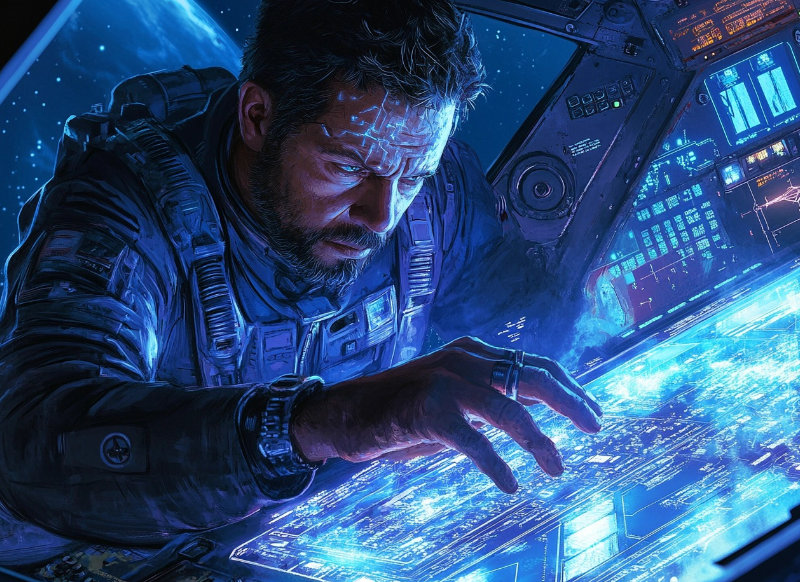Here are five questions you can use to guide your decisions during your turn:
1.What’s my character’s immediate obstacle, and how do they plan to address it?
Identify what’s standing in their way and think about how they’d approach solving it, whether it’s an external problem (like a malfunctioning ship) or an internal one (like self-doubt).
Example: Your space pilot might approach the engine not just to fix it, but to prove to themselves that they can still be a leader.
2.How can this moment help my character grow or confront a personal challenge?
Think about how your character’s actions can serve their larger arc. Are they taking a step toward overcoming a fear or resolving a past failure?
Example: The pilot’s actions could be framed as an effort to redeem themselves after a botched mission that haunts them.
3.How does this scene affect the world or society around them?
Consider how your character’s choices ripple outward. What impact might they have on the group, the mission, or the broader game world?
Example: Fixing the ship’s engine might signal to the rest of the crew that the pilot is stepping up, reshaping group dynamics.
4.Which relationships are affected by my actions?
Reflect on how your choices influence your character’s bonds with others. Does this build trust, create tension, or challenge an existing relationship?
Example: If the pilot’s decision puts the crew at risk for a chance to succeed, how will their closest ally—or rival—react?
5.How do my actions push the story forward?
Link your turn to the group’s overarching goals. Can you use this moment to gather information, forge alliances, or resolve conflicts?
Example: The pilot’s actions might uncover a clue about the planet’s dangers, helping the group decide their next move.


